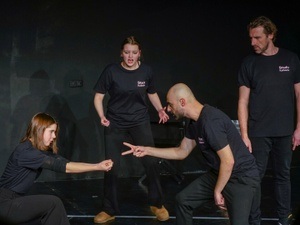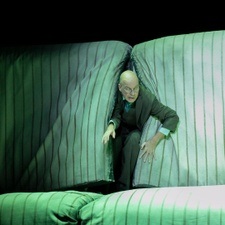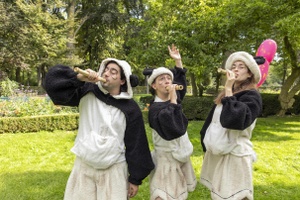Jeder stirbt für sich allein
In the organizer's words:
based on the novel by Hans Fallada - Premiere on April 5, 2025 - Schauspielhaus, Großes Haus - Schauspiel
A democratic we needs work, it needs practice, it needs people who don't allow pain to isolate us.
Carolin Emcke
Berlin 1940: A normal married couple in Prenzlauer Berg keep their distance, they are not interested in politics. They voted for Hitler because everyone did. Then they receive the news of their son's death. He had been killed in action in the West. In the face of their personal loss, Anna and Otto Quangel overcome their fear and adaptation. They decide to make a statement against the system and distribute handwritten messages in stairwells throughout the city. But in the microcosm of their apartment building, everyone denounces everyone else - whether out of greed, cowardice or indifference. In the climate of National Socialism, not only does everyone die alone, but they do so while they are still alive.
Hans Fallada learned of the couple's fate from a Gestapo file. Fascinated by the "banality of evil" (Hannah Arendt) and the hopeless resistance of the "little people", he created an ambivalent social panorama of Nazi-era Berlin in his 1946 novel, according to Primo Levi the "best book ever written about the German resistance to National Socialism".
How does civil society work? What can and must we do to defend the rule of law? How can we work towards a social "we" against isolation and division? How can we train civil courage? In her production, director Nora Schlocker, who returned to the D'haus with "Leonce and Lena", examines the relationship between power and morality in the face of an endangered democracy - then and now.
This content has been machine translated.













